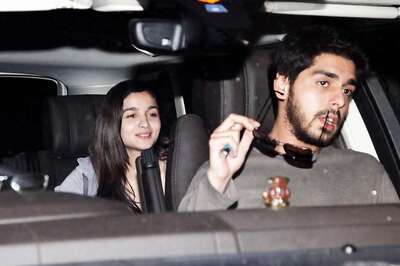
views
“The Congress will win the elections in Chhattisgarh as OBCs will vote for us. Split in Dalit-Satnami votes owing to the coming together of Ajit Jogi and Mayawati will be taken care of with the OBCs turning to the Congress,” said Tamradhwaj Sahu, the face of OBC consolidation in the state, hours before the election results were out.
On the last day of filing nominations for the second phase of Assembly polls, the Congress changed its nominee on one of its seats, the move seen as a step to woo OBC voters.
They dropped Pratima Chandrakar from Durg (Rural) and fielded Sahu, the only Congress MP from the state.
Sahu is chairman of the Congress’s OBC cell and his candidature was seen as a move to woo the community’s voters. The lone sitting Lok Sabha MP from the state, Sahu was appointed as the head of the party’s OBC cell in March this year. Also, the Congress named Lekhram Sahu, another OBC leader, as its Rajya Sabha candidate in March.
According to early trends, the Congress is well ahead of the BJP to form the next government in the state.
The alliance between Mayawati’s Bahujan Samaj Party and Ajit Jogi’s Janata Congress had made it a triangular contest, but the split in votes was compensated by the OBC support for the Congress.
The BJP had set its eyes on the fourth consecutive term, but chief minister Raman Singh was humbled by resurgent Congress, which seems to have eaten into its OBCs vote base.
The Congress strategy to make Bupesh Bhagel, a Kurmi, face of the election campaign also seemed to have worked for the party. Kurmis and Sahus – the two dominant communities among OBCs - account for around 36% of the state’s population. Both the communities comprise small traders and agriculturists who were hit hard by demonetisation and implementation of GST.
So far, the Congress banked on tribal votes in the state. In 2013 elections, the party had won a majority of tribal seats - 18 of the 29. In 2008, they had won 10.
The narrowing margin of the Congress and the BJP vote share in the past elections had indicated that the contest would be very close this time around. According to the data, the BJP's vote share in 2013 was 41% while that of the Congress was 40%.
In 2008, the BJP's vote share was 40% and that of the Congress was 39%. Since 2003, the gap in the vote share between the Congress and the BJP has been narrowing fast. The BJP’s vote share margin was 2.5%, but a decade later, in 2013, it reduced to 0.75% – a clear indicator that the Congress was not far behind.

















Comments
0 comment